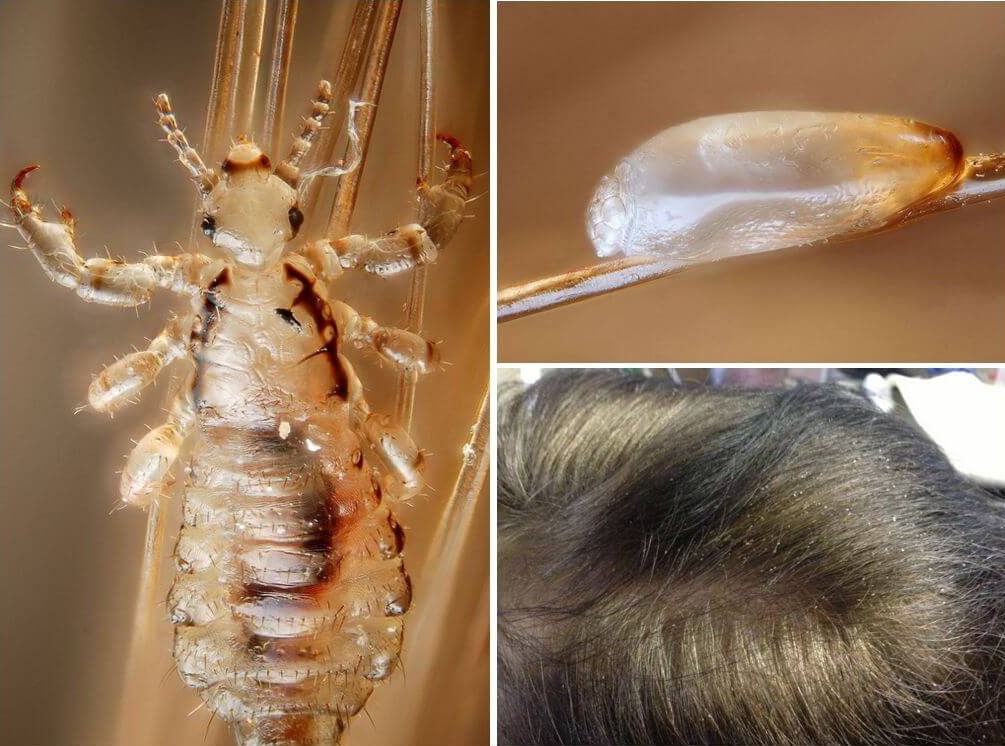Harnessing Nature: Doctors’ Insights on Natural Solutions to Preventing and Treating Lice
Lice infestations, while common, can be a persistent nuisance, especially among children. Traditional treatments often involve chemical-laden shampoos and harsh combing methods. However, in recent years, there has been a growing interest in natural remedies for preventing and treating lice infestations. We delve into this topic, exploring insights from medical professionals regarding the efficacy and safety of natural solutions.
Understanding Lice:
healthylivingdaily.net
Before delving into natural remedies, it’s crucial to understand the enemy: lice. Lice are tiny parasites that live on the scalp and feed on human blood. They spread easily through direct head-to-head contact and are particularly common among school-aged children. Lice infestations can lead to itching, irritation, and discomfort, making prevention and treatment essential.
The Appeal of Natural Solutions:
Many individuals are drawn to natural solutions due to concerns about the potential side effects of chemical treatments. Natural remedies often involve ingredients sourced from plants, essential oils, or other organic compounds. While scientific evidence supporting the efficacy of some natural treatments is limited, anecdotal reports and historical use have piqued the interest of both patients and healthcare professionals.
Doctor’s Opinions on Natural Prevention:
Dr. Sarah Lee, a pediatrician with years of experience, emphasizes the importance of prevention when it comes to lice infestations. She suggests that incorporating natural preventive measures into daily routines can be effective in reducing the risk of infestation. Dr. Lee recommends using essential oils such as tea tree oil or lavender oil, which have been touted for their repellent properties. These oils can be diluted and applied to the hair or added to shampoos to deter lice.
Additionally, Dr. Michael Chen, a dermatologist specializing in pediatric care, highlights the role of regular hair hygiene in preventing lice. He advises parents to teach their children the importance of not sharing hats, combs, or other personal items that may harbor lice. Simple practices such as tying long hair back and conducting routine head checks can also help identify and prevent infestations early on.
Natural Treatment Approaches:
thesun.co.uk
When it comes to treating lice infestations, natural remedies offer alternatives to traditional chemical treatments. Dr. Emily Rodriguez, a family physician with a focus on integrative medicine, suggests several natural approaches to treating lice.
One popular method involves using a fine-toothed comb to manually remove lice and nits (lice eggs) from the hair. While time-consuming, this approach can be highly effective when combined with other natural treatments. Dr. Rodriguez recommends applying a mixture of olive oil and tea tree oil to the hair before combing to loosen nits and facilitate their removal.
In addition to manual removal, certain essential oils have been studied for their potential efficacy in killing lice. Dr. Rodriguez cites research supporting the use of tea tree oil, eucalyptus oil, and neem oil as natural pediculicides (lice-killing agents). These oils can be applied to the scalp and left on for several hours before shampooing out.
Safety Considerations:
While natural remedies may offer promising alternatives, it’s essential to approach them with caution, especially when treating children. Dr. Lee advises parents to consult with healthcare professionals before using any natural remedies, particularly if their child has sensitive skin or underlying health conditions.
Dr. Chen echoes this sentiment, emphasizing the importance of proper dilution and application of essential oils to prevent skin irritation or adverse reactions. He also encourages parents to be vigilant for signs of allergic reactions and to discontinue use if any adverse effects occur.
Conclusion:
Natural solutions for preventing and treating lice infestations offer promising alternatives to traditional chemical treatments. Insights from medical professionals underscore the importance of prevention through daily hygiene practices and the judicious use of natural repellents. While further research is needed to fully understand the efficacy and safety of these remedies, many patients and healthcare providers are turning to natural approaches as part of comprehensive lice management strategies. By incorporating natural prevention methods and safe treatment approaches, individuals can take proactive steps to combat lice infestations while minimizing potential risks.
